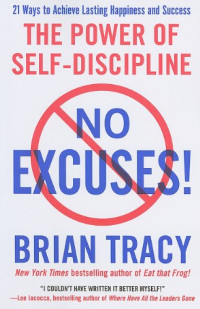- Main
- Education Studies & Teaching - School Education & Teaching
- Understanding How We Learn: A Visual...

Understanding How We Learn: A Visual Guide
Yana Weinstein, Megan Sumeracki, Oliver Caviglioli, The Learning ScientistsHow much do you like this book?
What’s the quality of the file?
Download the book for quality assessment
What’s the quality of the downloaded files?
Educational practice does not, for the most part, rely on research findings. Instead, there's a preference for relying on our intuitions about what's best for learning. But relying on intuition may be a bad idea for teachers and learners alike.
This accessible guide helps teachers to integrate effectively, research-backed strategies for learning into their classroom practice. The book explores exactly what constitutes good evidence for effective learning and teaching strategies, how to make evidence-based judgments instead of relying on intuition, and how to apply findings from cognitive psychology directly to the classroom. Including real-life examples and case studies, FAQs, and a wealth of engaging illustrations to explain complex concepts and emphasize key points, the book is divided into four parts: i) Evidence-based education and the science of learning, ii) Basics of human cognitive processes, iii) Strategies for effective learning and iv) Tips for students, teachers, and parents.
Written by The Learning Scientists and fully illustrated by Oliver Caviglioli, Understanding How We Learn is a rejuvenating and fresh examination of cognitive psychology's application to education. This is an essential read for all teachers and educational practitioners, designed to convey the concepts of research to the reality of a teacher's classroom.
This accessible guide helps teachers to integrate effectively, research-backed strategies for learning into their classroom practice. The book explores exactly what constitutes good evidence for effective learning and teaching strategies, how to make evidence-based judgments instead of relying on intuition, and how to apply findings from cognitive psychology directly to the classroom. Including real-life examples and case studies, FAQs, and a wealth of engaging illustrations to explain complex concepts and emphasize key points, the book is divided into four parts: i) Evidence-based education and the science of learning, ii) Basics of human cognitive processes, iii) Strategies for effective learning and iv) Tips for students, teachers, and parents.
Written by The Learning Scientists and fully illustrated by Oliver Caviglioli, Understanding How We Learn is a rejuvenating and fresh examination of cognitive psychology's application to education. This is an essential read for all teachers and educational practitioners, designed to convey the concepts of research to the reality of a teacher's classroom.
Year:
2018
Publisher:
Routledge Publishing
Language:
english
Pages:
166
ISBN 10:
113856172X
ISBN 13:
9781138561724
ISBN:
B07GR9YK53
File:
EPUB, 12.01 MB
Your tags:
IPFS:
CID , CID Blake2b
english, 2018
The file will be sent to your email address. It may take up to 1-5 minutes before you receive it.
The file will be sent to you via the Telegram messenger. It may take up to 1-5 minutes before you receive it.
Note: Make sure you have linked your account to Z-Library Telegram bot.
The file will be sent to your Kindle account. It may take up to 1–5 minutes before you receive it.
Please note: you need to verify every book you want to send to your Kindle. Check your mailbox for the verification email from Amazon Kindle.
Conversion to is in progress
Conversion to is failed
Premium benefits
- Send to eReaders
- Increased download limit
 File converter
File converter More search results
More search results More benefits
More benefits
Most frequently terms
Related Booklists












































































































































































































































 Amazon
Amazon  Barnes & Noble
Barnes & Noble  Bookshop.org
Bookshop.org 
![Hendrick, Carl & Kirschner, Paul A. [Hendrick, Carl] — How Learning Happens](https://s3proxy.cdn-zlib.se/covers200/collections/userbooks/b96460ede7aaf75f2c810cce9116ba5099d6f6f3fa232880f8eea19496f23577.jpg)
























![Chris Bailey [Bailey, Chris] — The Productivity Project](https://s3proxy.cdn-zlib.se/covers200/collections/userbooks/e6e76d29c80e879450ee4597424e2ffad6017068c4e981002a4929886464cb3d.jpg)














